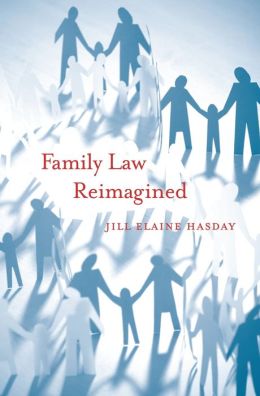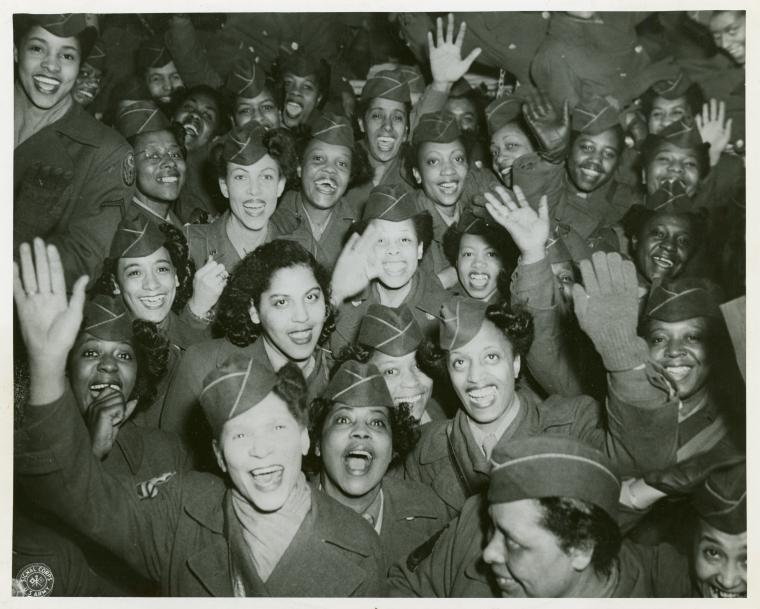There has been quite a hubbub lately over Hillary Clinton’s criminal defense of an alleged child rapist in 1975, when she was 27 years old and just starting out as a legal aid attorney. (See, e.g., here.) Her client was accused of sexually assaulting a 12 year old girl and beating her so severely that she spent five days in a coma. He was charged with Rape in the First Degree, but Clinton (then Rodham) successfully negotiated a deal in which her client pled guilty a lesser charge. A reporter found the victim in 2008, while she was serving a prison sentence. She had been in therapy for a decade following the attack, suffered fear of men, turned to drugs, and eventually landed in prison. At the time, she was quoted by Glenn Thrush (then of Newsday) as saying, “I’m sure Hillary was just doing her job,” although the victim now asserts that she was misquoted.
The story recently resurfaced because of an article in The Washington Free Beacon, an online newspaper which posted an interview from the mid-1980s between reporter Roy Reed and Hillary Clinton that had been archived at the University of Arkansas at Fayetteville. In the interview, Clinton said that her client passed the polygraph test that was administered to him, and then she chuckled and said that she didn’t trust polygraph tests after that. She also discussed one of the pieces of physical evidence in the case, her client’s underwear. The blood on the underwear linked her client to the crime, but when she asked to see the underwear, she learned that the portion with the blood which was tested by the lab had been disposed of. The court file for the case, which is available online (here), includes Clinton’s affidavit for psychiatric evaluation of the victim in which she wrote, “I have been informed that the complainant is emotionally unstable with a tendency to seek out older men and to engage in fanaticizing. I have also been informed that she has in the past made false accusations about persons, claiming they had attacked her body. Also that she exhibits an unusual stubbornness and temper when she does not get her way.”
After the Reed interview tape was released, The Daily Beast reached out to the victim for a new interview. The victim expressed her anger with Clinton’s statements in the affidavit and in the Reed interview, saying (here) “I would say [to Clinton], ‘You took a case of mine in ’75, you lied on me… I realize the truth now, the heart of what you’ve done to me. And you are supposed to be for women? You call that [being] for women, what you done to me? And I hear you on tape laughing.”
Following The Daily Beast’s piece, several news outlets ran articles and discussions discussing Clinton’s legitimacy as an advocate for women and viability as a presidential candidate. Kimberly Guilfoyle of the Fox News debate program “The Five” said (transcript here), “I hope that women are going to be smarter and intelligent, and say ‘Listen, this is inconsistent with what she’s been telling us. Who would I believe? Which is the real Hillary Clinton? The one back then, taking cases on, voluntarily choosing to represent a child rapist?’ That’s a big choice.” Another speaker on “The Five” described Clinton’s representation of the client (here) as “declaring war on women when it’s politically convenient.” Washington Post reporter Melinda Henneberger characterized Clinton’s interview (here) as “not . . . typical talk for a lifelong defender of women and children,” and asked, “wouldn’t her apparent willingness to attack a sixth-grader compromise a presidential run?”
These criticisms of Clinton should matter to feminists and ethical members of the legal profession, regardless of political ideology. It is important not to discount the victim’s feelings about Clinton’s role in what she had experienced. However, what often gets lost in the discussion of Clinton’s role in this case is her ethical duty as an attorney to zealously advocate for her client. The issue of the conflicting moral obligations to a lawyer’s client and to the dignity of the opposing party, particularly in cases involving rape, has been written about at length. There is little debate about the role of a criminal defense attorney as a zealous advocate, regardless of what the client has been accused of, or how much evidence there is against him.
It was not Hillary Clinton’s job to unilaterally decide her client’s guilt or innocence and to temper the quality of her representation accordingly. An individual accused of rape is entitled to an attorney, and that attorney is bound to zealously advocate for his client. Being a steadfast advocate for a criminal defendant, no matter how reprehensible he might be, or how many prior convictions he has, is a feminist issue. If defense attorneys are expected to ignore missing evidence and allegations that the accuser is untruthful, no self-respecting advocate for women can trust that the system is convicting guilty individuals. In short, it is precisely our current system, wherein every ‘t’ must be crossed and every ‘i’ must be dotted in order to obtain a conviction, that lends legitimacy to rape convictions. Certainly, the way that the system operates is cruel and off-putting for victims of rape to go through, and the low conviction rate in rape cases points to other systemic problems. Yet it is patently unreasonable to fault Clinton for fulfilling her ethical and professional responsibilities in the system that exists, especially since she has advocated for victims of sexual violence in the decades that have followed.
An attorney has an ethical duty to listen to his client, to assess the client’s arguments in his own defense, and where there is a credible argument that makes strategic and legal sense, to pursue that argument. What Hillary Clinton wrote in the affidavit requesting the psychiatric evaluation reflects an assertion by her client, or someone else with knowledge about the victim, that the victim had fabricated her allegations and had made false accusations in the past. What she wrote in her affidavit is exactly what advocates for reform point to when they describe the revictimization of rape victims by the justice system. But the possibility that the victim was not being forthright warranted investigation. No competent criminal defense attorney in Clinton’s shoes would have acted differently. It unfortunately is a valuable way of mounting a defense to a charge like this, but the blame for that does not rest on the 27-year old shoulders of a new attorney in 1975. Henneberger, the Washington Post reporter, (here) described Clinton’s defense of her client as an attack on a sixth grade girl, but it was no more an attack on a sixth grade girl than defending an accused robber is an attack on the person who was robbed or defending a speeding ticket is an attack on Sunday drivers.
After accepting that our criminal justice system can only function when those accused of serious crimes are provided with competent, zealous representation, it is also hard to condemn Clinton’s investigation of the forensic evidence from the underwear. The justice system doesn’t allow the government to simply declare that forensic evidence indicated a certain conclusion, and then dispose of the evidence so that the defense cannot rebut it. Clinton was criticized for being boastful in her interview about her work on the missing evidence. But it’s hard to blame her for being boastful after her legwork helped to protect her client’s rights. It begs the question of whether such boasting would have been criticized if she were male, since it has been well-documented that while women are penalized in the workplace for aggression and self-promotion, men are rewarded for such characteristics.
Throwing away the sample that was tested is such an enormous error that it is hard to characterize her work on the missing evidence as an attack on the victim. Clinton’s critics seem to be confusing victim-blaming tactics with a legitimate investigation that a competent criminal defense attorney would undertake. If Clinton had not made the efforts that she had in the case, she would have been derided as unethical, someone who substituted her own judgment for that of the justice system. It would have been difficult to argue with that characterization.
Clinton was also criticized for helping to negotiate a plea deal for her client. It may seem seedy to someone outside of the legal profession, but around 90% of criminal cases end with a plea deal. Plea deals have special value in cases like this, where they can protect the victim (here, a 12-year old girl) from having to testify in front of strangers about the attack. Although this case involves an allegation of an extremely vicious sexual assault, it is worth noting that the cumulative year that Clinton’s client spent in jail is more than most rapists are sentenced to today. According to RAINN (here), including the estimated 60% of rapes that are never reported, only 3% of rapists ever spend a day in prison. It’s not as though Clinton’s client received an overly lenient deal that was outside of the normal range of outcomes for a case like this, whether or not the client’s attorney was aggressive.
Defense work has been political poison in recent years, but Clinton has suffered doubly because she has been characterized in the media as a hypocritical traitor to her gender and a woman who is not fulfilling her role by protecting children. Male candidates who have a background in criminal defense, even those who advocate for victims of sexual assault, have not endured the same treatment. They have not been criticized for the zealousness and aggressiveness that they put into their work, only on the outcomes they have produced. Perhaps this is reflective of Clinton’s higher profile as a potential presidential candidate, or the greater number of details available about this case, but it does smart of a double-bind that penalizes Clinton as a woman for the work that she did. What Clinton’s critics have failed to recognize is that there is no conflict between ensuring that criminal defendants are treated as the Constitution and the legal profession require that they be, and being a feminist and an advocate.
-Emily Gillingham
Emily Gillingham is a rising 3L at Michigan State University College of Law. She received her BS from Eastern Michigan University in Political Science and Women’s and Gender Studies in 2012. She is the incoming president of the MSU Law chapter of Law Students for Reproductive Justice and volunteers at a local domestic violence shelter.


 Vermont Law School’s website is hosting a memorial page/on-line “Remembrance Journal”
Vermont Law School’s website is hosting a memorial page/on-line “Remembrance Journal”  Polly Morgan is a Lecturer in Law at the University of East Anglia School of Law. UAE is located in Norfolk, England. She recently answered these questions for Feminist Law Professors.
Polly Morgan is a Lecturer in Law at the University of East Anglia School of Law. UAE is located in Norfolk, England. She recently answered these questions for Feminist Law Professors.
 Clare Huntington (Fordham Law School) has published a new book,
Clare Huntington (Fordham Law School) has published a new book,  Jill Elaine Hasday (Minnesota) has published a new book,
Jill Elaine Hasday (Minnesota) has published a new book, 





 Rutgers University Press has published a new book by Benedetta Faedi Duramy (Golden Gate). Here is the publisher’s description of
Rutgers University Press has published a new book by Benedetta Faedi Duramy (Golden Gate). Here is the publisher’s description of 